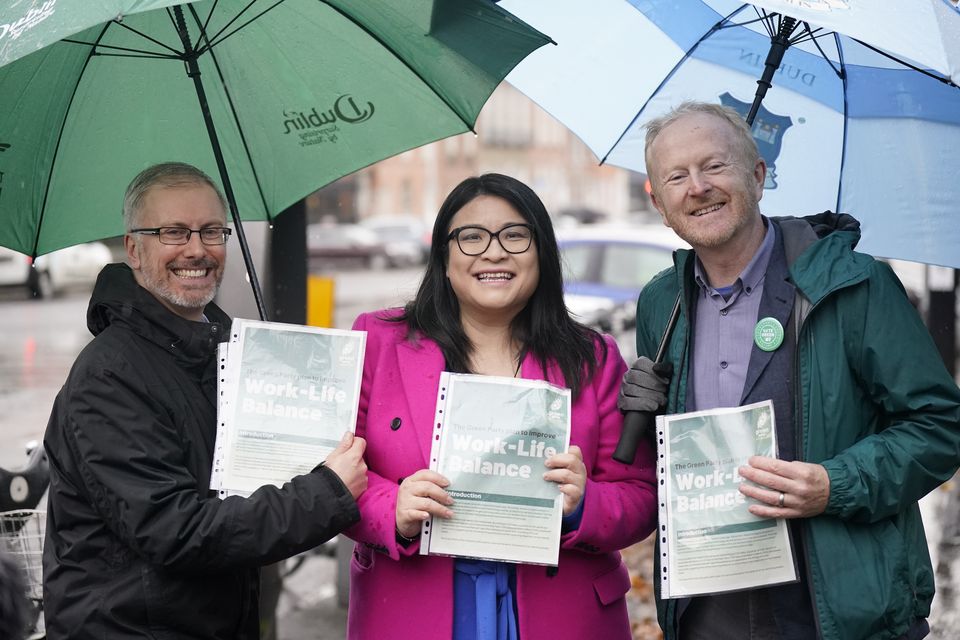The Green Party has called for a Citizens’ Assembly on a four-day work week in order to comb through issues such as people’s pay and its effect on the public service.
Children’s Minister Roderic O’Gorman said it should be held after the planned citizens’ assembly on education, suggesting the second year in government with legislation implemented in the third year of government.
He said that flexible and remote work had achieved a better work-life balance for people, but it was now time to “take the next steps forward”.
He said that figures from the Central Statistics Office (CSO) suggests about a quarter of workers feel they get inadequate amount of leisure time and time with their families.
Mr O’Gorman said this limited spare time has health, mental health and social impacts.
A Citizens’ Assembly was warranted because there were “complexities” to the suggestion, he added, particularly for the hospitality and public sectors.
It also raised questions on what people should be paid to work a four-day week.
“Fundamentally, we want to continue this effort to broaden out access to leisure time, broaden out access to caring time and benefit from the technological changes, AI changes, and make sure that those changes are benefiting workers in the same way that they’re often benefiting their companies,” he said on Monday.
The party is also pledging to hold an extra bank holiday in July.
This would bring Ireland’s total number of bank holidays up to 12, which is the European average.
Green Party leader Roderic O’Gorman (left) with candidates Hazel Chu and David Healy in Dublin launching the Green Party’s plans to further enhance the work/life balance (Niall Carson/PA)
Asked whether the four-day proposal was a bid to attract voters back to the Green Party, after they had fallen from 7% support in the general election to around 3-4% in current polls, Mr O’Gorman said “no I don’t think so”.
“I think it speaks to the work we’ve already done with this government in terms of trying to help workers balance their work-life responsibilities with their caring responsibilities as well.
“So it’s consistent with the work-life balance act that I introduced, it’s consistent with the extension of breastfeeding breaks that I introduced, and it’s consistent with the introduction of the February bank holiday, which the Green Party championed.”
Asked about the possible challenges of a four-day work week, he added: “We’re not talking about immediate implementation. We’re talking about discussing it with social partners, see what are the benefits, see how we can support it.”
The four-day week and bank holiday proposals were highlighted in the Green Party’s election manifesto.
The party also proposed expanding the right to request flexible working to all workers, and not just those in caring roles; to transpose and legislate for the provisions of the EU Pay Transparency Directive, and to implement a living wage.
Other Green Party election pledges contained in its manifesto include spending 10 billion euros on public transport, a tax on business class flights and private jets, and a State-led childcare system.
It said it would oversee 50,000-53,000 new homes built a year, 15,000 of which would be affordable and 12,000 social; and create a means testing agency to simplify access to public services.
